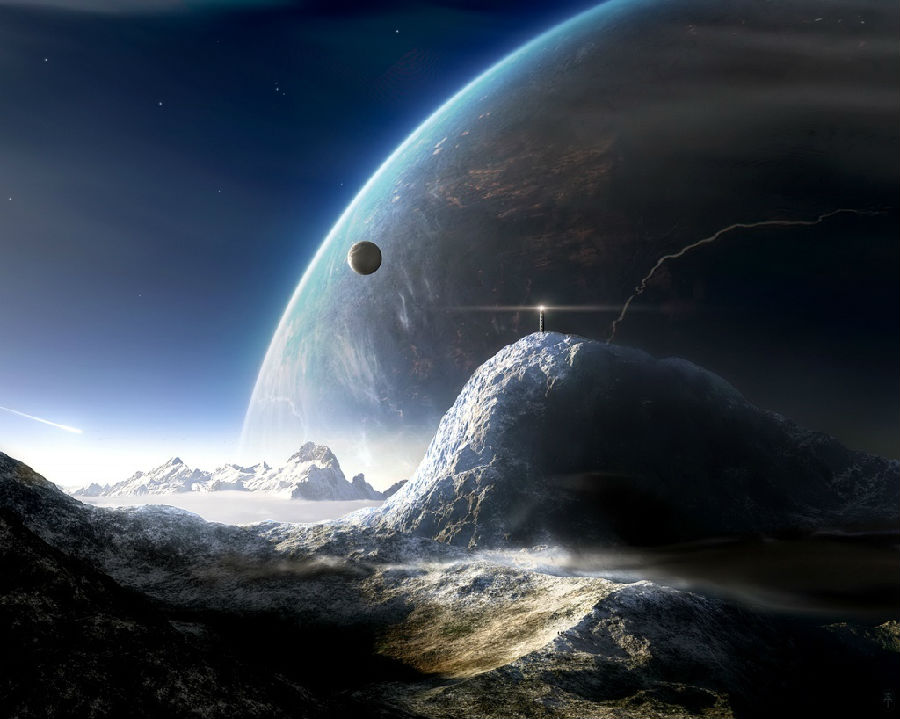For most of the time of the object's approach we would exist in a kind of cone of uncertainty. It would certainly be the most interesting few months in the history of the world. And imagine the party if it passed safely.
在那个物体渐渐逼近的大部分时间里,我们会生活在某种无法确定的状态之中。这肯定会是世界史上最有意思的几个星期。想像一下,要是它平安无事地过去了,我们会举行多么盛大的庆祝会啊。
So how often does something like the Manson impact happen? I asked Anderson and Witzke before leaving.
“那么,像曼森撞击这样的事件会多长时间发生一次?”我离开之前问安德森和威策克。
Oh, about once every million years on average, said Witzke.
“哦,平均每100万年发生一次。”威策克说。
And remember, added Anderson, "this was a relatively minor event. Do you know how many extinctions were associated with the Manson impact?"
“记住,”安德森接着说,“这还是个区区的小事件。你知不知道有多少种生物的灭绝与曼森撞击有关系?”

No idea, I replied.
“不知道。”我回答说。
None, he said, with a strange air of satisfaction. "Not one."
“一种也没有,”他露出一种古怪的满意神色说,“一种也没有灭绝。”
Of course, Witzke and Anderson added hastily and more or less in unison, there would have been terrible devastation across much of the Earth, as just described, and complete annihilation for hundreds of miles around ground zero. But life is hardy, and when the smoke cleared there were enough lucky survivors from every species that none permanently perished.
当然,威策克和安德森连忙——一定程度上是异口同声地——补充说,地球上很多地方都受到了严重的破坏,就像刚刚描述的那样,方圆几百公里的地方被化为乌有。但是,生命是倔强的。烟消云散以后,每个物种都有足够的幸存者,哪个物种也没有永远毁灭。
The good news, it appears, is that it takes an awful lot to extinguish a species. The bad news is that the good news can never be counted on. Worse still, it isn't actually necessary to look to space for petrifying danger. As we are about to see, Earth can provide plenty of danger of its own.
灭绝一个物种极不容易,这似乎是个好的消息。坏的消息是,这个好消息是绝对靠不住的。更糟糕的是,你其实不必凝视着太空来寻找令人震惊的危险。你马上就会知道,地球本身就是个很危险的地方。



